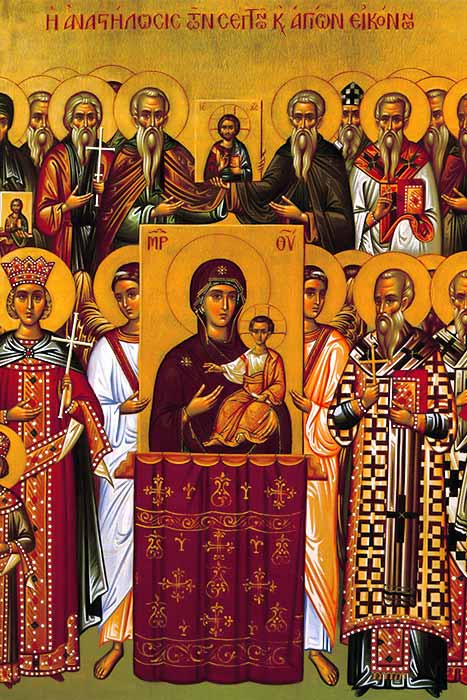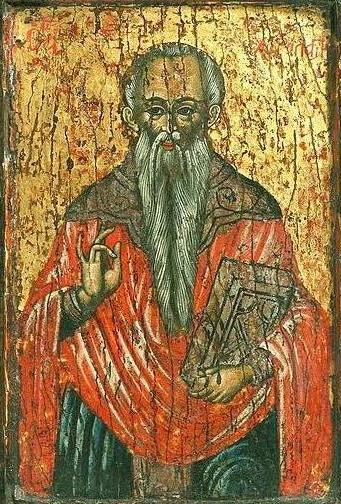Besides this you know what hour it is, how it is full time now for you to wake from sleep. For salvation is nearer to us now than when we first believed; the night is far gone, the day is at hand. Let us then cast off the works of darkness and put on the armor of light; let us conduct ourselves becomingly as in the day, not in reveling and drunkenness, not in debauchery and licentiousness, not in quarreling and jealousy. But put on the Lord Jesus Christ, and make no provision for the flesh, to gratify its desires. As for the man who is weak in faith, welcome him, but not for disputes over opinions. One believes he may eat anything, while the weak man eats only vegetables. Let not him who eats despise him who abstains, and let not him who abstains pass judgment on him who eats; for God has welcomed him. Who are you to pass judgment on the servant of another? It is before his own master that he stands or falls. And he will be upheld, for the Master is able to make him stand.
Romans 13: 11-14; 14: 1-14 (Epistle of the Nativity of St. John the Baptist)
On June 24, we celebrate the Feastday of the Nativity of St. John the Baptist. Since both the Epistle and Gospel have a significant message, we will reflect on the Epistle today and the Gospel on the actual feast tomorrow.
The Old Testament is a history of God’s people from the creation of the world until just before the time of Christ. The Old Testament begins with the story of creation, told in the book of Genesis. We read how God made the world perfect and how He made mankind after His image and likeness. In Genesis 3, we read about the Fall, when mankind fell away from God because it fell prey first to pride, then greed, and then to dishonesty.
The rest of the Old Testament is how God continued to love His people, how He made a plan to redeem them, and how He prepared them for the promised Messiah. He established a covenant with them through Abraham the Patriarch. Abraham, Isaac, and Jacob lived in the land of Canaan, the Promised Land. When famine struck, the Israelites were led by Joseph to settle in the land of Egypt. After many generations, the Israelites found themselves enslaved by the Egyptians. Moses would lead them to freedom. Under Moses, they would also receive the Ten Commandments and the Law. The Law gave them a sense of order. They would re-enter the land of Canaan. First judges and then kings would lead them. Prophets would comfort them when they fell on hard times, especially when they were exiled to Babylon. The Prophets foretold of the coming of the Messiah, sent by God to redeem His people. This is how the Old Testament ends, with the “table set” so to speak for the Christ to come into the world.
Isaiah foretold that prior to the arrival of the Messiah, “A voice cries: ‘In the wilderness prepare the way of the Lord, Make straight in the desert a highway for our God. Every valley shall be lifted up, and every mountain and hill be made low; the uneven ground shall become level, and the rough places a plain. And the glory of the Lord shall be revealed, and all flesh shall see it together, for the mouth of the Lord has spoken.’” (Isaiah 40: 3-5) John the Baptist would preach that message. On June 24, we commemorate the Nativity of St. John the Baptist.
The Epistle lesson of June 24, taken from Romans 13: 11-14; 14: 1-4 tells us that “salvation is nearer to us now” (13:11), appropriately said as we honor the Forerunner who was going to reveal the Christ. For us living in contemporary times, the message is that each day of our lives, our salvation draws nearer. It is a call to get more serious, “to cast off the works of darkness and put on the armor of light.” (13:12). If we are concerned about our salvation and motivated to work for the attaining of the Kingdom of God, we have to “conduct ourselves becomingly.” (13:13) We have to put away bad habits, like “revelry and drunkenness. . .debauchery and licentiousness. . .quarreling and jealousy.” (13:13)
Instead we are to “put on the Lord Jesus Christ” and in doing so we should stop gratifying the desires of the flesh, and instead worry about the growing of our Spirits, of our souls, so that we grow up and mature in a Christ-centered manner. The Christian faith, and specifically the Orthodox practice of it, calls us to certain standards, especially when it comes to things like fasting. Because everyone is in a different place as far as maturity, when it comes to their journey, there is the tendency and the constant temptation to be judgmental of others and how they are expressing their faith. Saint Paul warned the early Christians, and by extension warns us in modern times, that we are not to pass judgment on those who eat rather than fasting. For it will be “before his own master” (Jesus Christ, and not us) “that he stands or falls.” Therefore, it is the role of each of us to be vigilant and consistent in our practice of the Faith and to be encouraging, rather than judgmental, to others and their practice of it.
As we commemorate the Nativity of St. John the Baptist, we remember his role as the forerunner, as the one who endorsed Jesus as the Christ and told others so. We remember that he prepared the way of the Lord by getting people ready to receive Christ. And we remember how his final words to his followers were, “He must increase, but I must decrease.” (John 3:30) Indeed John’s entire purpose was to endorse and glorify Jesus as the Christ and to lead others to do the same.
It is good that we commemorate St. John the Baptist, because his role is ours as well. We are to endorse Jesus as our Savior, and we are to tell others so. We are to prepare our own hearts to receive Christ and encourage others to do the same. And the major work of our lives is not for us to increase our financial holdings and our wealth, but to increase the wealth of our spirits, to allow Christ to increase in us, and work in concert with Him. Our purpose is to endorse and glorify Christ, and to lead others to do the same.
If we do this, there will be no need to worry about our judgment, for as Saint Paul says, we “will be upheld, for the Master is able to make”(14:4) us stand in His presence. Indeed, He has the power to judge us worthy of eternal life.
O Prophet and Forerunner of the appearance of Christ, with longing we honor you, although we have not the means of extolling you worthily. Your birth, which was exalted and most glorious, ended the barrenness of your mother and the muteness of your father; and unto the world it announced the Incarnation of God the Word. (Apolytkion of the Feast of the Nativity of St. John the Baptist, Trans. By Fr. Seraphim Dedes)
Let us “conduct ourselves becomingly” today, so that we not only come closer to Christ ourselves, but provide a good example for others to do the same!

